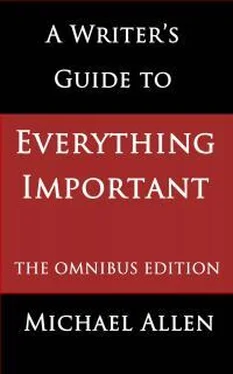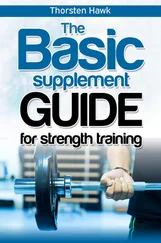Humour is particularly valuable in releasing endorphins and enkephalins into the body – and these substances are natural painkillers. Laughter results in biological changes which are the reverse of those occurring during an episode of stress.
Since this interaction between body and mind is taking place all the time, Pert believes that the biochemicals of emotion are stored in the body, thereafter affecting us quite extensively; emotions may, for instance, affect our ability to move a part of our body, or even feel it. Memories and the record of our experiences are located not only in the brain, she believes, but also throughout our physical selves.
These ideas have important implications for writers, as I shall continue to explain. Emotions can and do transform the body; they work for better or for worse, creating disease or healing it. Given that this is true, and given that writers have the means to create emotions in their readers and audiences, then it follows that the writer has at least a potential role as a healer.
10. The range of emotions
If it is true, as I believe, that writers need to understand how emotions are created, and that writers need to develop the skills which will enable them to create emotions in others, then it follows that writers need to be aware of the possible range of emotions.
How many emotions are there?
And are they all equally useful to the writer?
Those were the kind of questions which I began to ask myself some forty years ago, and gradually, over the succeeding years, I have put together some answers.
What I needed, I eventually decided, was a sort of emotional equivalent of Bloom’s Taxonomy of Educational Objectives. (A taxonomy is simply a classified list or catalogue. However, no self-respecting social scientist will ever use a short and familiar word when a longer one can be used instead.)
About twenty-five years ago, I picked the brains of my friendly neighbourhood psychologists, searched the databases in a good library, and found that there was only a modest amount of scientific literature to help me.
The best book that I could then find on emotion was The Language of Emotion by Joel R. Davitz, and, with the aid of one or two other sources, I put together a list of all possible emotions. That list is reproduced below.
I say ‘all possible emotions’ with some trepidation, because naturally anyone who looks at my list is going to say, But what about so-and-so?
Well, what about so-and-so? You should understand that the list which follows was originally drawn up for my benefit alone. As far as I am concerned the list is complete, but if you wish to add to it, or delete from it, for your own purposes, then feel free to do so.
I appreciate that some people will argue that there are omissions from the list, and that some ‘emotions’ are included which should not be there. For example: cowardice and bravery are not listed.
Personally I don’t think that cowardice is an emotion; it’s a character trait. Cowardice is what you display, or reveal, when you are placed in a situation which creates fear, and then you run away, rather than deciding to face up to the danger.
The same can be said about courage, or bravery. If, in the face of danger, you make a conscious and deliberate decision that you will stand firm and fight the enemy, then you display bravery.
On the other hand, one ‘emotion’ which is listed is gaiety; and some might argue that it should not be. It could be argued that gaiety is a mood, or a manner of behaviour, rather than an emotion. There are many more questions and quibbles which we could discuss, and you are welcome to debate these matters in your own mind or with your friends if you wish.
You will also note that I have placed the named emotions in a particular order. I decided, correctly or otherwise, that emotions can conveniently be divided into two kinds: positive and negative, which broadly means pleasant and unpleasant. Within those two categories, emotions can again be ranged from mildly unpleasant to absolutely horrible and intolerable; and ditto on the other side of the divide. Whether I am right to place elation above enjoyment, for instance, is a nicety which we could debate all night. But it would not, I suggest, be particularly profitable.
Here then is my list of emotions, beginning with the pleasant ones:
Positive emotions (ranged from the most powerful and pleasant to the mildest in strength)
Ecstasy
Rapture
Happiness
Hope
Exultation
Delight
Gaiety
Elation
Contentment
Serenity
Enjoyment
Amusement
Confidence
Relief
Love
Lust
Passion
Affection
Excitement
Cheerfulness
Friendliness
Gratitude
Determination
Admiration
Inspiration
Pride
Amazement
Astonishment
Curiosity
Awe
Reverence
Solemnity
Satisfaction
Negative emotions (ranged from the least powerful and unpleasant to the most intolerable and unwelcome)
Apathy
Boredom
Reflection
Puzzlement
Surprise
Resignation
Disappointment
Indignation
Concern
Dejection
Impatience
Irritation
Frustration
Dislike
Embarrassment
Resentment
Discontent
Pity
Exasperation
Scorn
Jealousy
Contempt
Sadness
Nervousness
Dismay
Disgust
Shame
Guilt
Repentance
Humiliation
Alarm
Distress
Remorse
Melancholy
Sorrow
Grief
Anxiety
Loathing
Depression
Anger (rage, fury)
Dread
Hate
Fear
Panic
Horror
Terror
Despair
11. The creative writer’s task
I don’t much care for the term ‘creative writer’. However, rather than follow in the social-science tradition and invent a new term (and thus give my work an entirely spurious air of originality and profundity) I will use it on this occasion.
A creative writer is (I am going to assume) someone who invents or creates fictional material, as opposed to someone who relates the facts, such as a historian or a news reporter. The term ‘creative writer’ therefore covers all those who write fiction or drama.
I suggested above that the creative writer’s purpose, properly understood, is to produce a piece of work which will fulfil the punter’s desire to experience a satisfying emotion.
Again, please note that I am talking here about the purpose of fiction, not non-fiction. In non-fiction the purpose is to explain, or convince, or describe. These processes may well involve or generate some emotion, but the creation of emotion is not their prime purpose.
The punter’s desire is not just a desire for any emotion. It is a desire to be made to feel what Poe called ‘a sense of the fullest satisfaction.’ In my own mind, I define this process as entertaining the reader, though I appreciate that ‘entertainment’ has a rather superficial ring to it, and the effect that is being sought is often far from trivial or superficial. In any event, the writer’s task is to leave the reader with a strongly positive emotion, even if the subject matter is dark and tragic.
As an aside, perhaps I should mention that I have never yet met, or heard of, a publisher’s editor who understood that this is the proper and most sensible intention for a writer to have. But I have, happily, met a film producer (the late Sheldon Reynolds) who understood it perfectly.
The short story, which was Poe’s speciality, is so constituted that there is only time and space to convey one major emotion to the reader: which is why Poe spoke of ‘a single effect to be wrought out.’ In the course of a novel, or a 90-minute film, however, it is possible to create in the punter a whole variety of emotions: anxiety, surprise, amusement, sadness.
Читать дальше












